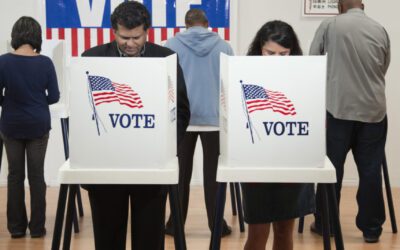
Courtesy Jason Washer
In May, Keene resident Jason Washer received a letter from the Keene Food Services that he said “didn’t sit right” with him.
Washer, a parent with three children—a second, sixth, and eighth grader—in the Keene School district said the letter outlined the district’s school meal payment policy.
The policy, which is more than a decade old, says any middle or high school student who reaches an unpaid account balance of $20 would not be able to purchase meals.
At the elementary school level, the debt threshold is $25. After reaching that threshold, students are denied a hot lunch and instead get a cold sandwich—along with other components of the lunch such as fruit, vegetables, juice and milk—on their lunch trays.
Washer thinks the policy is unfair. Lunch in the school district is $3.25 for elementary school students, and $3.45 for middle and high schoolers.
“There has to be a more humane way to collect debt from parents than withholding food from kids,” Washer said. “It’s not ethical.”
As a lifelong Granite Stater—and a former student of the school district himself—said he cannot wrap his head around a school district’s policy that shames and deprives children because of their parents’ inability to afford food.
“I’m frankly astounded not only that this policy exists, but at the amount of pushback that I’ve gotten from the school district in terms of trying to make some changes,” he said.
When he brought the matter to the school board, he challenged the legality of the school’s policy and asked the board to revise it. Washer claims that the district highlighted how its policy was in line with state law. Under a state law, no student can be subject to different treatment from the standard school lunch meal or school cafeteria procedures, and Washer believes denying kids food—or asking them to only choose from cold lunch options violates the statute.
“…it’s not just a legal issue,” Washer said. “It’s a moral issue.”
Seeking ‘compassionate’ solutions to this problem
For now, the school board is considering revising the policy to make a cold entreé available to all students, regardless of their meal balances, or to remove penalties and ramp up the notification system to parents, school board chair George Downing told The Granite Post.
Downing said the school currently issues parents multiple notifications in the form of emails, texts and calls once the account balance falls below $10.
But if parents still fail to pay, students should not have to shoulder their parents’ debts, said Laura Milliken, executive director of NH Hunger Solutions—a grassroots advocacy group with a mission to eliminate hunger in NH.
“We need to find creative, compassionate solutions to help schools cover school meal costs that don’t involve sacrificing family privacy, students’ dignity or students’ ability to learn,” Milliken said. “And it’s important to note that eligibility gaps leave families behind. Income eligibility for free and reduced meals doesn’t capture the true number of families in need in the state.”
Almost 45% of New Hampshire’s children live in households that reported having insufficient food as of Aug. 19, 2024, according to NH Hunger Solutions.
“So the first thing I think we need to do is maximize participation in the existing programs,” Milliken said. “So we want to be sure that we’re connecting all eligible families to the food and nutrition supports that they qualify for and that we’re not leaving any kids behind.”
But increasing participation is not an easy pathway for public schools in New Hampshire, where the subject of school meals has been a largely partisan issue, and Republican lawmakers have repeatedly tried to defund public education.
House Bill 1212—shot down by Republicans in the House this year—would have expanded eligibility for free and reduced-price lunches in New Hampshire from 185%t of the federal poverty level to 350% of the federal poverty level—increasing it from $57,720 to $109,200 for a family of four. About 965 of the 3,019 students in the district are eligible for free and reduced lunches, as per the NH Department of Education.
Last year, a separate bill that would have automatically signed up New Hampshire students for free or reduced-price lunches if their families were enrolled in Medicaid, was also killed by Republicans.
Medicaid allows sharing of data with school districts about families that are at or below the free and reduced-price lunch threshold. Medicaid Direct Certification would have reduced the hassle of filling out paperwork and helped parents who avoid applying for free and reduced-priced lunches due to the stigma attached to it, Milliken said.
“Having to carry that form into the principal’s office is very stigmatizing, even if school districts think they’re being discreet,” Milliken said. “And I think that if there was an option for families to do the application online, that would make things easier.”
With chronic underfunding, schools have no other choice
School districts in New Hampshire never have enough money, Milliken said.
“If we end the year with a negative lunch balance, we simply have to pay it off,” said school board chair Downing.
In New Hampshire, where there is no state income tax, local property taxpayers fund public schools, and the state’s share of education spending is the lowest in the country. In fact, the state’s school funding is so low that a judge deemed it unconstitutional last year.
While New Hampshire’s public schools teeter on budget shortfalls, Republicans in the state are trying to divert more funding away from the roughly 165,000 kids who attend them. The state’s education freedom accounts program, launched about four years ago, gives taxpayer dollars to families for kids to attend private schools, religious schools, or homeschool.. The program has taken almost $73 million dollars away from public schools so far.
And according to recent data, it’s benefitted more kids (63%) who are already in the high-income bracket in the 2024-25 school year.
“I think it’s a timely discussion, and the parent (Mr. Washer) that brought it to us, I think really he’s done the district a favor by coming to us and saying, these policies may be outdated,” Downing said. “I think it’s important to take a look at it and figure out where we are as a community and how we can best support our students.”
The school board will meet to discuss the policy in a public session on Tuesday, Oct. 8, after which the recommended revisions will be sent to the policy review committee before the full board votes on it.
“For those eight hours that they’re in school, (teachers, superintendents and school administrators) are responsible for a child,” Washer said. “And responsible adults feed kids.”
**Find pro-public education candidates in your districts recommended by the National Educators Association of New Hampshire here. Check your voter registration status, and find out who’s on your ballot, here.
Support Our Cause
Thank you for taking the time to read our work. Before you go, we hope you'll consider supporting our values-driven journalism, which has always strived to make clear what's really at stake for New Hampshirites and our future.
Since day one, our goal here at Granite Post has always been to empower people across the state with fact-based news and information. We believe that when people are armed with knowledge about what's happening in their local, state, and federal governments—including who is working on their behalf and who is actively trying to block efforts aimed at improving the daily lives of Granite State families—they will be inspired to become civically engaged.


Election fatigue? Here’s how to recharge your mental health
We all have our personal struggles in life, from work stress to relationship drama, but something about the 2024 election season simply felt...

Trump wins the White House
In state after state, Trump outperformed what he did in the 2020 election while Harris failed to do as well as Joe Biden did in winning the...

Presidential race too close to call as vote counts continue in key swing states
Results in Michigan, Pennsylvania, and Wisconsin may not come in until Wednesday morning, and Arizona and Nevada are unlikely to see calls made...

Chris Pappas defeats Russell Prescott in New Hampshire’s 1st Congressional District
Congressman Chris Pappas has defeated Republican challenger Russell Prescott in New Hampshire’s 1st Congressional District. Pappas, an openly gay...

Reporter’s notebook: Here’s what the vibe was like at polling places across NH
Granite Staters are showing up to elect the next president of the United States—and bringing the good vibes with them. Election Day is nearly...

New Hampshire on track to set record turnout for general election
New Hampshire voters are on track for a record voter turnout at the general election on Tuesday. The Secretary of State David Scanlan said Thursday...





